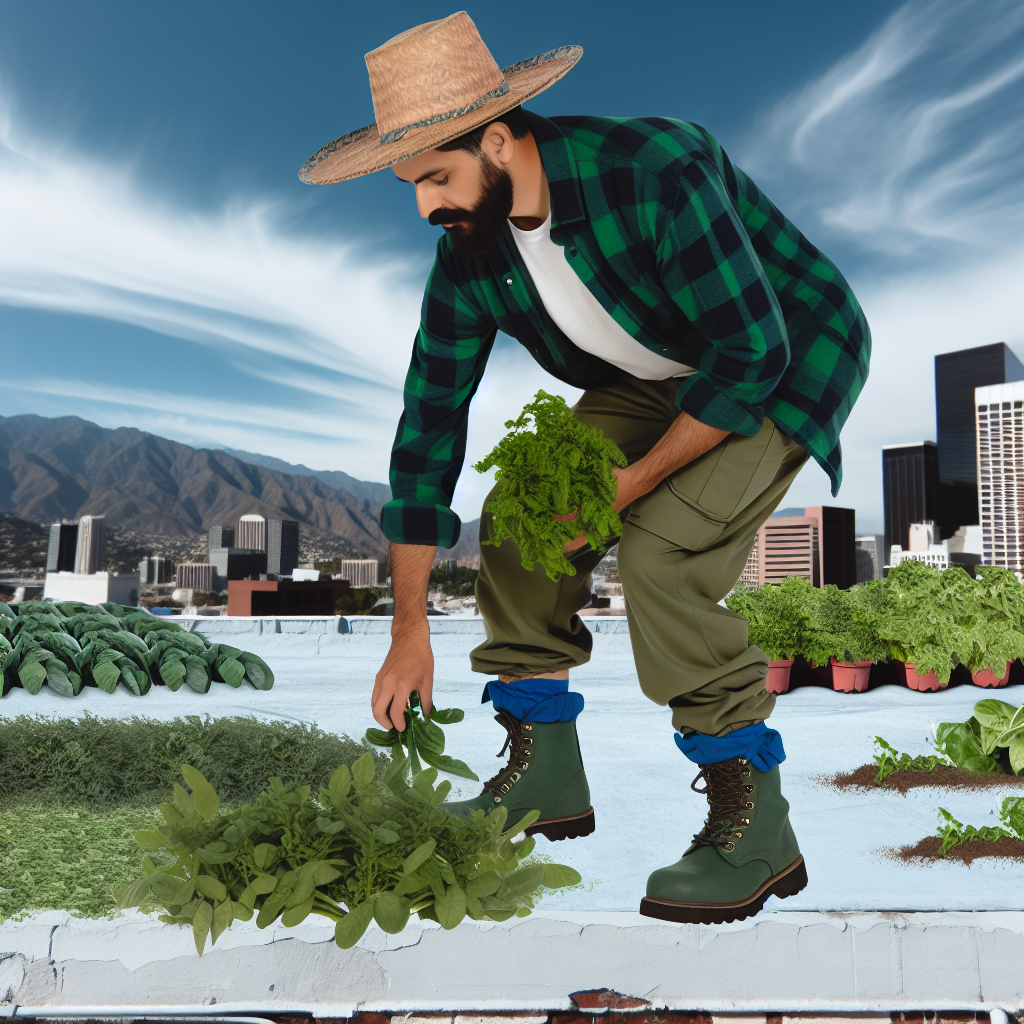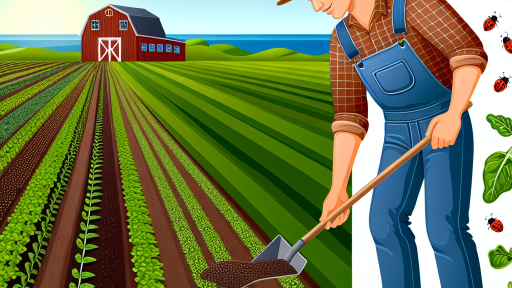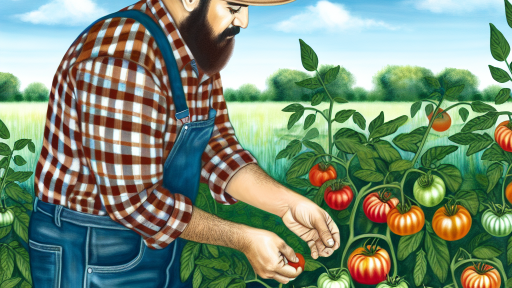Introduction to Urban Farming
Definition and Importance
Urban farming refers to the practice of cultivating, processing, and distributing food in and around urban areas.
This practice plays a crucial role in food security and sustainability.
It allows communities to grow fresh produce locally, reducing reliance on distant food sources.
Moreover, urban farming can transform vacant lots and underutilized spaces into productive environments.
This not only helps in increasing green spaces but also enhances urban biodiversity.
Importantly, urban farming promotes healthy eating habits among city dwellers.
It encourages engagement between community members, fostering social cohesion.
Additionally, urban farming can provide economic opportunities through small business creation.
As a result, it can alleviate urban poverty and unemployment rates.
Urban farming practices can significantly lower carbon footprints by minimizing transportation needs.
Consequently, this helps combat climate change on a local level.
Furthermore, urban farming practices often focus on sustainable agricultural techniques.
This ensures that farming methods are environmentally friendly and resource-efficient.
Overall, urban farming significantly contributes to both environmental and social well-being.
Success Story of Rooftop Gardens in New York City
Overview of Rooftop Gardens
Rooftop gardens have transformed urban landscapes throughout New York City.
Transform Your Agribusiness
Unlock your farm's potential with expert advice tailored to your needs. Get actionable steps that drive real results.
Get StartedThese gardens utilize underused spaces atop buildings for agricultural production.
They enhance food security within local communities.
Moreover, they contribute to sustainability efforts in the city.
Impact on the Community
Local residents have significantly benefited from these gardens.
They provide fresh produce to neighborhoods with limited access to healthy foods.
Additionally, rooftop gardens foster community engagement and education.
Workshops and events encourage residents to learn about gardening and nutrition.
Notable Projects and Initiatives
Several projects showcase the potential of rooftop gardens.
- The Brooklyn Grange operates one of the largest rooftop farms in the world.
- It produces over 50,000 pounds of organic vegetables annually.
- City Growers focuses on education and farm-to-table initiatives.
Environmental Benefits
Rooftop gardens significantly improve urban air quality.
They absorb carbon dioxide and release oxygen, benefitting all city dwellers.
Additionally, these gardens help to reduce the urban heat island effect.
This leads to lower energy costs for cooling buildings.
Future of Rooftop Farming
The future of rooftop gardening looks bright in New York City.
Increased interest in urban agriculture is evident among residents.
Local government initiatives promote further development of these spaces.
As a result, more buildings are being retrofitted for agricultural production.
Collaboration between businesses and nonprofits is also on the rise.
Innovative Vertical Farms in San Francisco
Introduction to Vertical Farming
Vertical farming utilizes modern technology to grow crops in stacked layers.
It minimizes land use while maximizing yield.
In urban environments, vertical farms make food production more sustainable.
A Glance at Local Success Stories
San Francisco features several innovative vertical farms that inspire communities.
These projects showcase how urban spaces can adapt to meet food needs.
Fresh Greens Farm is one prominent success in the area.
This farm operates in a repurposed warehouse in the city.
Showcase Your Farming Business
Publish your professional farming services profile on our blog for a one-time fee of $200 and reach a dedicated audience of farmers and agribusiness owners.
Publish Your ProfileIt utilizes hydroponics to grow a variety of vegetables year-round.
Operational Techniques and Technologies
Fresh Greens Farm implements cutting-edge LED technology for optimal growth.
These lights simulate natural sunlight, enhancing plant growth efficiency.
Additionally, the farm employs a closed-loop water system.
This system conserves water while providing nutrients to plants.
Such innovations not only boost productivity but also support sustainability.
Community Engagement and Educational Programs
Vertical farms in San Francisco prioritize community involvement and education.
Fresh Greens Farm organizes workshops for local residents.
These workshops educate participants on urban agriculture practices.
Furthermore, the farm collaborates with schools to teach students about sustainability.
This engagement fosters a sense of community while building awareness.
Future Prospects for Vertical Farming
The future looks promising for vertical farming in urban areas.
As technology advances, productivity and sustainability will increase.
More cities are likely to adopt similar farms to address food security.
With ongoing innovation, vertical farming has the potential to revolutionize urban agriculture.
These farms will significantly contribute to local economies and healthier living.
Delve into the Subject: Water-Efficient Edible Landscape Designs
Community Impact: How Urban Farms are Transforming Local Economies
The Role of Urban Farms
Urban farms play a vital role in enhancing city landscapes.
They provide fresh produce to local communities.
Additionally, they create green spaces amidst urban development.
This fosters a stronger connection between residents and their food sources.
Boosting Local Economies
Urban farms stimulate economic growth in urban areas.
They generate jobs related to farming, sales, and education.
Moreover, they often source materials and labor locally.
This keeps money circulating within the community.
Supporting Local Entrepreneurship
Urban farms often serve as incubators for small businesses.
They enable local entrepreneurs to sell products directly.
For instance, farmers’ markets thrive alongside these farms.
Additionally, they often host workshops that empower local residents.
This approach nurtures innovation and creativity among community members.
Enhancing Food Security
Food insecurity affects many urban areas.
Urban farms address this issue by increasing access to fresh food.
They often implement community-supported agriculture (CSA) programs.
These programs deliver seasonal produce directly to families.
As a result, urban farms contribute to healthier diets and lifestyles.
Community Engagement and Education
Urban farms engage community members in meaningful ways.
They offer volunteer opportunities that foster teamwork.
Moreover, educational programs raise awareness about sustainable practices.
This education empowers individuals to grow their own food.
Consequently, urban farms strengthen community bonds and networks.
Showcase Your Farming Business
Publish your professional farming services profile on our blog for a one-time fee of $200 and reach a dedicated audience of farmers and agribusiness owners.
Publish Your ProfileDelve into the Subject: Efficient Watering Systems For Container Gardening
Sustainability Practices
Organic Farming Techniques
Urban farmers often embrace organic farming techniques.
This practice reduces chemical exposure in food production.
They utilize composting to enrich soil naturally.
Crop rotation maintains soil fertility and improves yields.
Additionally, they use companion planting to deter pests.
Hydroponics and Aquaponics
Hydroponics has gained popularity in urban environments.
This soil-less method conserves water and space effectively.
Aquaponics combines fish farming with plant cultivation.
It creates a symbiotic environment benefiting both organisms.
These techniques result in faster growth rates for crops.
Community Involvement
Successful urban farms often rely on community support.
They host workshops to educate local residents.
Moreover, community gardens foster collaboration among neighbors.
This builds a sense of ownership and stewardship.
Engaging locals also helps to spread sustainable practices.
Utilizing Technology
Modern urban farms leverage technology for efficiency.
Many farmers use apps to monitor crop health.
Data analytics aids in optimizing resource use.
Moreover, automated irrigation systems save water sustainably.
These innovations boost productivity while minimizing waste.
Urban Bee Keeping
Urban beekeeping is becoming increasingly popular.
This practice helps pollinate local plants effectively.
Bees produce honey, providing additional income for farmers.
Furthermore, it raises awareness of environmental issues.
Beekeepers often educate the public about the importance of pollinators.
Gain More Insights: Vertical Container Gardening Ideas For Farmers

Technological Innovations
The Impact of Technology on Urban Farming
Technology plays a crucial role in urban farming.
Many farmers leverage technology to enhance productivity.
For example, sensor technology can monitor plant health.
Moreover, apps provide farmers with real-time data.
This data allows them to make informed decisions quickly.
Hydroponics and Aquaponics
Hydroponics maximizes space while minimizing water use.
This soil-less growing method is ideal for urban settings.
Aquaponics combines fish farming with plant cultivation.
This system creates a symbiotic environment for both species.
Many urban farms are adopting these innovative techniques.
Vertical Farming
Vertical farming optimizes space in crowded cities.
This approach uses vertically stacked layers for planting.
It can significantly increase yield in limited areas.
Showcase Your Farming Business
Publish your professional farming services profile on our blog for a one-time fee of $200 and reach a dedicated audience of farmers and agribusiness owners.
Publish Your ProfileMany businesses are investing in vertical farming technologies.
They aim to address food security in urban locations.
Smart Farming Solutions
Smart farming incorporates IoT devices for automation.
These devices help manage irrigation and nutrient delivery.
As a result, farmers can conserve resources effectively.
Drones are also used for monitoring and mapping plots.
Consequently, farmers save time and enhance crop management.
Community Engagement and Education
Technological innovations facilitate community engagement.
Workshops and courses are offered to educate urban residents.
These programs promote sustainable practices and technologies.
They also encourage individuals to start their own urban farms.
Community events often showcase local technology solutions.
You Might Also Like: Aquaponics Solutions for Urban Farming
Challenges Faced by Urban Farmers and How They Overcame Them
Space Limitations
Urban farmers often struggle with limited space for cultivation.
Creative solutions help them maximize available areas.
Vertical farming allows them to grow upwards instead of outwards.
Additionally, container gardening provides versatile options.
Soil Quality Issues
Many urban environments contain contaminated soil.
Farmers address this problem by using raised beds.
Furthermore, they use high-quality soil mixes to ensure nutrient availability.
Regular soil testing also helps monitor quality over time.
Pest Management
Pest infestations can threaten urban crops.
Integrated pest management strategies are essential for success.
Farmers often use natural predators to control pest populations.
They also employ organic pesticides as a last resort.
Access to Water
Urban areas may have limited access to reliable water sources.
Farmers often implement rainwater harvesting systems to collect water.
Drip irrigation further conserves water and reduces waste.
As a result, efficient water management becomes crucial.
Community Support and Collaboration
Building community support is vital for urban farmers.
They collaborate with local organizations to gain resources.
Community gardens unite people around a common goal.
Additionally, farmers share knowledge and skills through workshops.
Financial Constraints
Many urban farmers face financial challenges when starting.
Grant programs and crowdfunding can provide essential funds.
Moreover, farmers often create diverse revenue streams.
Offering workshops or selling produce directly to consumers sustains income.
Future of Urban Farming: Trends and Predictions for the Next Decade
Technological Advancements
Technology will play a crucial role in urban farming’s evolution.
Innovations like vertical farming will optimize space use in cities.
Smart sensors will monitor plant health and environmental conditions.
Showcase Your Farming Business
Publish your professional farming services profile on our blog for a one-time fee of $200 and reach a dedicated audience of farmers and agribusiness owners.
Publish Your ProfileAdditionally, data analytics will improve resource efficiency.
Drones may assist with planting and crop monitoring tasks.
Increased Community Involvement
Community gardens will continue to grow in popularity.
People will seek shared spaces for sustainable food production.
Urban farming initiatives will foster local engagement and education.
Moreover, partnerships with schools will teach students about agriculture.
Communities will collaborate to establish food co-ops and markets.
Environmental Impact Awareness
There will be a greater focus on sustainability in urban farming.
Consumers will demand locally sourced and organic produce.
This shift will minimize carbon footprints associated with food transport.
Additionally, urban farms will promote biodiversity in city environments.
Efforts to reduce waste through composting will gain momentum.
Policy and Supportive Frameworks
Governments will introduce policies to support urban agriculture.
Incentives for local farmers will promote food production in cities.
Furthermore, zoning laws may evolve to accommodate urban farms.
Tax breaks for green initiatives will encourage more startups.
Collaborations between public and private entities will flourish.
Investment and Economic Growth
Investments in urban farms will drive economic growth.
More individuals will recognize the profitability of urban agriculture.
Startup accelerators will focus on agritech innovations.
Jobs in urban farming may increase, supporting local economies.
Additionally, markets for niche products will expand significantly.
Additional Resources
I tried to prove that small family farms are the future. I couldn’t do it.
The 5 Cs of Agrivoltaic Success Factors in the United States …




